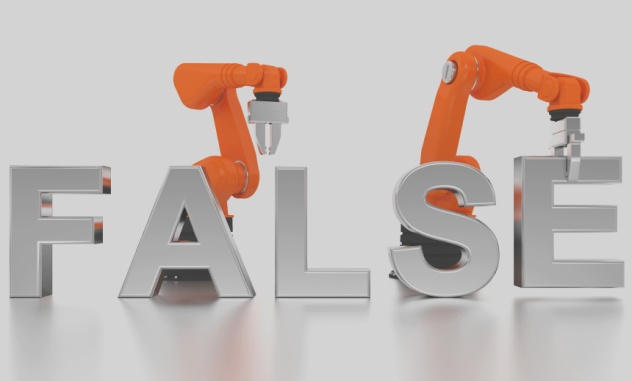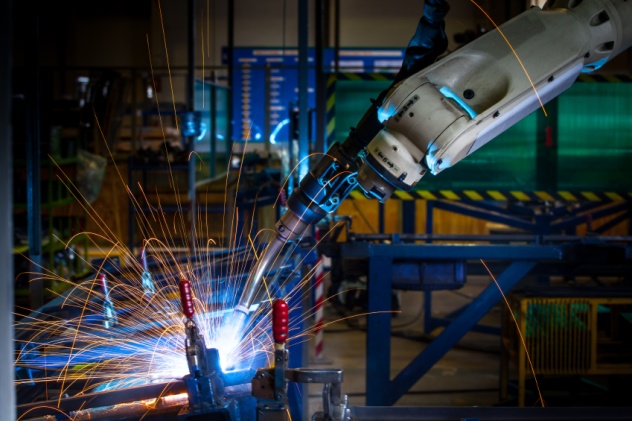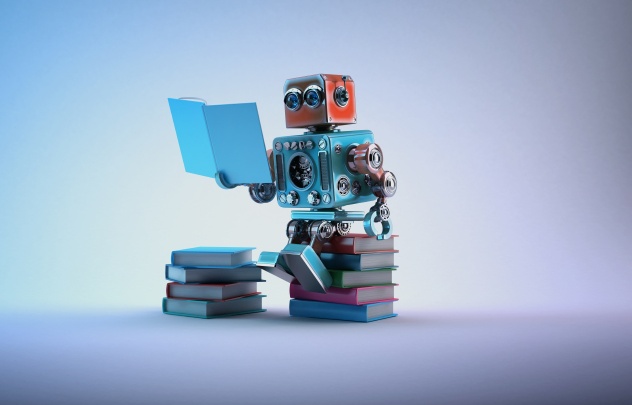Stephen Hawking, Bill Gates, and Elon Musk have something in common, and it’s not wealth or intelligence. They’ re all terrified of the AI takeover. Also called the AI apocalypse, the AI takeover is a hypothetical scenario where artificially intelligent machines become the dominant life-form on Earth. It could be that robots rise and become our overlords, or worse, they exterminate mankind and claim Earth as their own.
But can the AI Apocalypse really happen? What has prompted reputable and world-renowned people like Musk and Hawking to express their concern about this hypothetical scenario? Can Hollywood films like The Terminator be right after all? Let’s find out why many credible people, even leading scientists, are concerned about the AI takeover and why it could happen very soon.
10. They’re Learning To Deceive And Cheat

Lying is a universal behavior. Humans do it all the time, and even some animals, such as squirrels and birds, resort to it for survival. However, lying is no longer limited to humans and animals. Researchers from Georgia Institute of Technology have developed artificially intelligent robots capable of cheating and deception. The research team, led by Professor Ronald Arkin, hopes that their robots can be used by the military in the future.
Once perfected, the military can deploy these intelligent robots in the battlefield. They can serve as guards, protecting supplies and ammunition from enemies. By learning the art of lying, these AIs can “buy time until reinforcements are able to arrive” by changing their patrolling strategies to deceive other intelligent robots or humans.
9. They’re Starting To Take Over Our Jobs

Many of us are afraid of AIs and robots killing us, but scientists say we should be more worried about something less horrifying—machines eliminating our jobs. Several experts are concerned that advances in artificial intelligence and automation could result in many people losing their jobs to machines. In the United States alone, there are 250,000 robots performing work that humans used to do. What’s more alarming is that this number is increasing by double digits every year.
It’s not only workers who are worried about machines taking over human jobs; AI experts are concerned, too. Andrew Ng of Google’s Brain Project and a chief scientist from Baidu (China’s equivalent to Google) have expressed concerns about the danger of AI advancement. AIs threaten us because they’re capable of doing “almost everything better than almost anyone.”
Well-respected institutions have also released studies that mirror this concern. For example, Oxford University conducted a study which suggested that in the next 20 years, 35 percet of jobs in the UK will be replaced by AIs.
8. They’re Starting To Outsmart Human Hackers
Hollywood movies portray hacking as sexy or cool. In real life, it’s not. It’s “usually just a bunch of guys around a table who are very tired [of] just typing on a laptop.”
Hacking might be boring in real life, but in the wrong hands, it can be very dangerous. What’s more dangerous is the fact that scientists are developing highly intelligent AI hacking systems to fight “bad hackers.” In August 2016, seven teams are set to compete in DARPA’s Cyber Grand Challenge. The aim of this competition is to come up with super smart AI hackers capable of attacking enemies’ vulnerabilities while at the same time finding and fixing their own weaknesses, “protecting [their] performance and functionality.”
Though scientists are developing AI hackers for the common good, they also acknowledge that in the wrong hands, their super intelligent hacking systems could unleash chaos and destruction. Just imagine how dangerous it would be if a super intelligent AI got hold of these smart autonomous hackers. It would render humans helpless!
7, They’re Starting To Understand Our Behavior
Facebook is undeniably the most influential and powerful social media platform today. For many of us, it has become an essential part of our everyday routines—just like eating. But every time we use Facebook, we’re unknowingly interacting with an artificial intelligence. During a town hall in Berlin, Mark Zuckerberg explained how Facebook is using artificial intelligence to understand our behavior.
By understanding how we behave or “interact with things” on Facebook, the AI is able to make recommendations on we might find interesting or what would suit our preferences. During the town hall, Zuckerberg expressed his plan to develop even more advanced AIs to be used in other areas such as medicine. For now, Facebook’s AI is only capable of pattern recognition and supervised learning, but it’s foreseeable that with Facebook’s resources, scientists would eventually come up with supersmart AIs capable of learning new skills and improving themselves—something that could either improve our lives or drive us to extinction.
6. They’ll Soon Replace Our Lovers
Many Hollywood movies, such as Ex-Machina and Her, have explored the idea of humans falling in love and having sex with robots. But could it happen in real life? The controversial answer is yes, and it’s going to happen soon. Dr. Ian Pearson, a futurologist, released a shocking report in 2015 that says “human-on-robot sex will be more common than human-on-human sex” by 2050. Dr. Pearson partnered with Bondara, one of the UK’s leading sex toy shops, in conducting the report.
His report also includes the following predictions: By 2025, very wealthy people will have access to some form of artificially intelligent sex robots. By 2030, everyday people will engage in some form of virtual sex in the same way people casually watch porn today. By 2035, many people will have sex toys “that interact with virtual reality sex.” Finally, by 2050, human-on-robot sex will become the norm.
Of course, there are people who are against artificially intelligent sex robots. One of them is Dr. Kathleen Richardson. She believes that sexual encounters with machines will set unrealistic expectations and will encourage misogynistic behavior toward women.
5. They’re Starting To Look Very Humanlike
She might look like Sarah Palin, but she’s not. She’s Yangyang, an artificially intelligent machine who will cordially shake your hand and give you a warm hug. Yangyang was developed by Hiroshi Ishiguro, a Japanese robot expert, and Song Yang, a Chinese robotics professor. Yangyang got her looks not from Sarah Palin, but from Song Yang, while she got her name from Yang Haunting, Song Yang’s daughter.
Yangyang isn’t the only robot that looks eerily like a human being. Singapore’s Nanyang Technological University (NTU) has also created its own version. Meet Nadine, an artificially intelligent robot that is working as a receptionist at NTU. Aside from having beautiful brunette hair and soft skin, Nadine can also smile, meet and greet people, shake hands, and make eye contact. What’s even more amazing is that she can recognize past guests and talk to them based on previous conversations. Just like Yangyang, Nadine was based on her creator, Professor Nadia Thalmann.
But can the AI Apocalypse really happen? What has prompted reputable and world-renowned people like Musk and Hawking to express their concern about this hypothetical scenario? Can Hollywood films like The Terminator be right after all? Let’s find out why many credible people, even leading scientists, are concerned about the AI takeover and why it could happen very soon.
10. They’re Learning To Deceive And Cheat

Lying is a universal behavior. Humans do it all the time, and even some animals, such as squirrels and birds, resort to it for survival. However, lying is no longer limited to humans and animals. Researchers from Georgia Institute of Technology have developed artificially intelligent robots capable of cheating and deception. The research team, led by Professor Ronald Arkin, hopes that their robots can be used by the military in the future.
Once perfected, the military can deploy these intelligent robots in the battlefield. They can serve as guards, protecting supplies and ammunition from enemies. By learning the art of lying, these AIs can “buy time until reinforcements are able to arrive” by changing their patrolling strategies to deceive other intelligent robots or humans.
9. They’re Starting To Take Over Our Jobs

Many of us are afraid of AIs and robots killing us, but scientists say we should be more worried about something less horrifying—machines eliminating our jobs. Several experts are concerned that advances in artificial intelligence and automation could result in many people losing their jobs to machines. In the United States alone, there are 250,000 robots performing work that humans used to do. What’s more alarming is that this number is increasing by double digits every year.
It’s not only workers who are worried about machines taking over human jobs; AI experts are concerned, too. Andrew Ng of Google’s Brain Project and a chief scientist from Baidu (China’s equivalent to Google) have expressed concerns about the danger of AI advancement. AIs threaten us because they’re capable of doing “almost everything better than almost anyone.”
Well-respected institutions have also released studies that mirror this concern. For example, Oxford University conducted a study which suggested that in the next 20 years, 35 percet of jobs in the UK will be replaced by AIs.
8. They’re Starting To Outsmart Human Hackers
Hollywood movies portray hacking as sexy or cool. In real life, it’s not. It’s “usually just a bunch of guys around a table who are very tired [of] just typing on a laptop.”
Hacking might be boring in real life, but in the wrong hands, it can be very dangerous. What’s more dangerous is the fact that scientists are developing highly intelligent AI hacking systems to fight “bad hackers.” In August 2016, seven teams are set to compete in DARPA’s Cyber Grand Challenge. The aim of this competition is to come up with super smart AI hackers capable of attacking enemies’ vulnerabilities while at the same time finding and fixing their own weaknesses, “protecting [their] performance and functionality.”
Though scientists are developing AI hackers for the common good, they also acknowledge that in the wrong hands, their super intelligent hacking systems could unleash chaos and destruction. Just imagine how dangerous it would be if a super intelligent AI got hold of these smart autonomous hackers. It would render humans helpless!
7, They’re Starting To Understand Our Behavior
Facebook is undeniably the most influential and powerful social media platform today. For many of us, it has become an essential part of our everyday routines—just like eating. But every time we use Facebook, we’re unknowingly interacting with an artificial intelligence. During a town hall in Berlin, Mark Zuckerberg explained how Facebook is using artificial intelligence to understand our behavior.
By understanding how we behave or “interact with things” on Facebook, the AI is able to make recommendations on we might find interesting or what would suit our preferences. During the town hall, Zuckerberg expressed his plan to develop even more advanced AIs to be used in other areas such as medicine. For now, Facebook’s AI is only capable of pattern recognition and supervised learning, but it’s foreseeable that with Facebook’s resources, scientists would eventually come up with supersmart AIs capable of learning new skills and improving themselves—something that could either improve our lives or drive us to extinction.
6. They’ll Soon Replace Our Lovers
Many Hollywood movies, such as Ex-Machina and Her, have explored the idea of humans falling in love and having sex with robots. But could it happen in real life? The controversial answer is yes, and it’s going to happen soon. Dr. Ian Pearson, a futurologist, released a shocking report in 2015 that says “human-on-robot sex will be more common than human-on-human sex” by 2050. Dr. Pearson partnered with Bondara, one of the UK’s leading sex toy shops, in conducting the report.
His report also includes the following predictions: By 2025, very wealthy people will have access to some form of artificially intelligent sex robots. By 2030, everyday people will engage in some form of virtual sex in the same way people casually watch porn today. By 2035, many people will have sex toys “that interact with virtual reality sex.” Finally, by 2050, human-on-robot sex will become the norm.
Of course, there are people who are against artificially intelligent sex robots. One of them is Dr. Kathleen Richardson. She believes that sexual encounters with machines will set unrealistic expectations and will encourage misogynistic behavior toward women.
5. They’re Starting To Look Very Humanlike
She might look like Sarah Palin, but she’s not. She’s Yangyang, an artificially intelligent machine who will cordially shake your hand and give you a warm hug. Yangyang was developed by Hiroshi Ishiguro, a Japanese robot expert, and Song Yang, a Chinese robotics professor. Yangyang got her looks not from Sarah Palin, but from Song Yang, while she got her name from Yang Haunting, Song Yang’s daughter.
Yangyang isn’t the only robot that looks eerily like a human being. Singapore’s Nanyang Technological University (NTU) has also created its own version. Meet Nadine, an artificially intelligent robot that is working as a receptionist at NTU. Aside from having beautiful brunette hair and soft skin, Nadine can also smile, meet and greet people, shake hands, and make eye contact. What’s even more amazing is that she can recognize past guests and talk to them based on previous conversations. Just like Yangyang, Nadine was based on her creator, Professor Nadia Thalmann.
Last edited:



